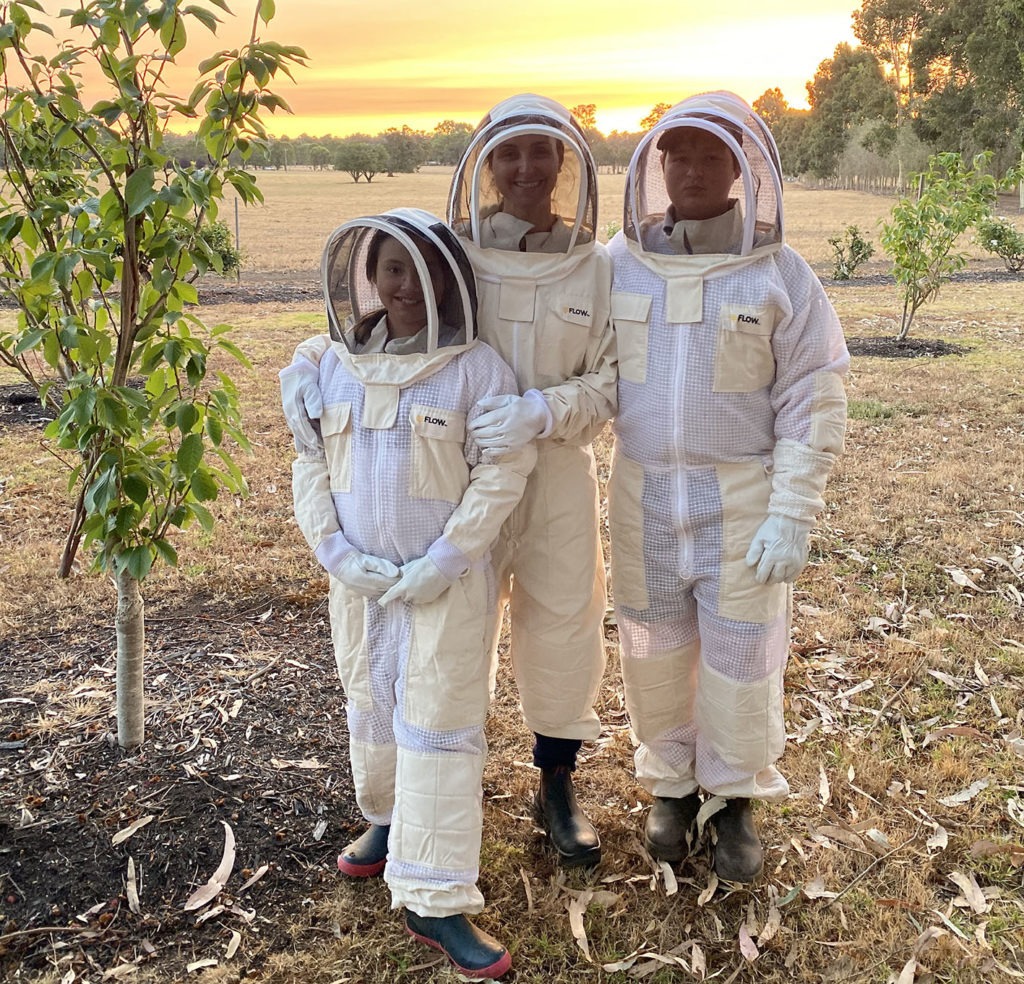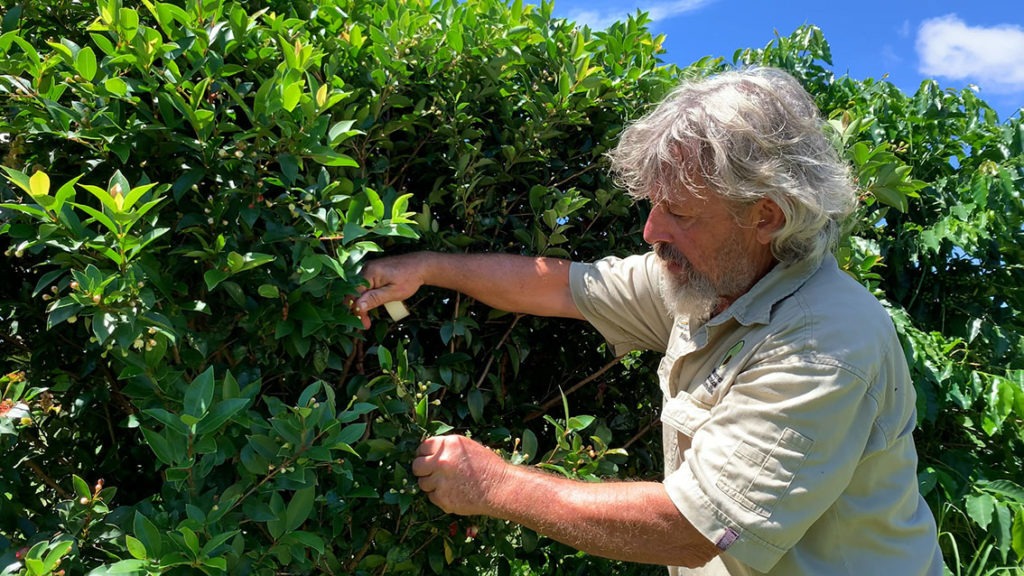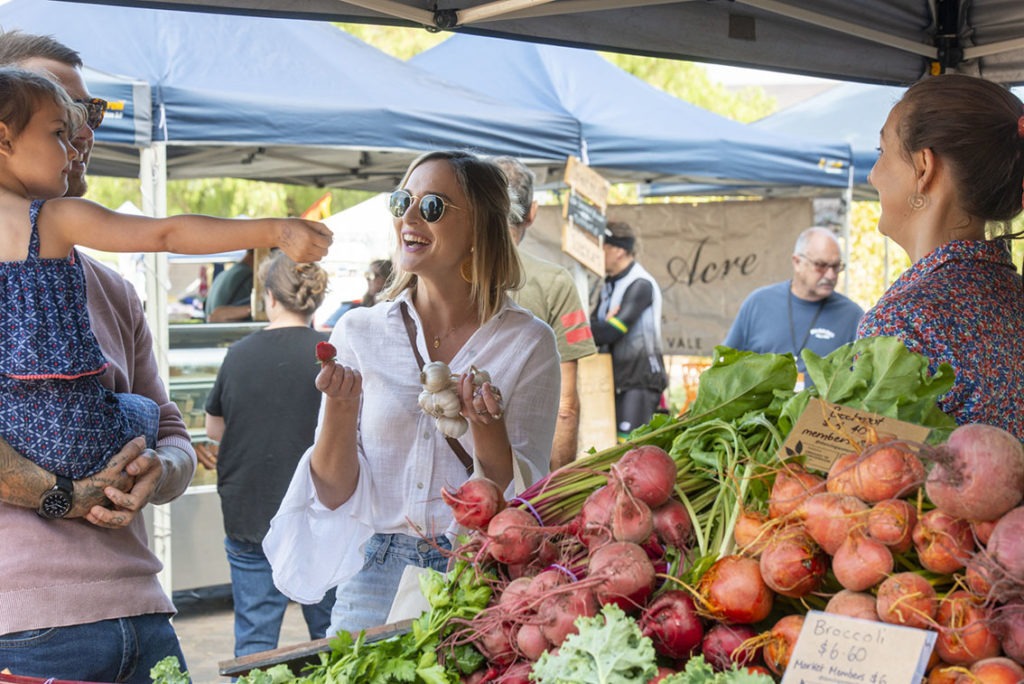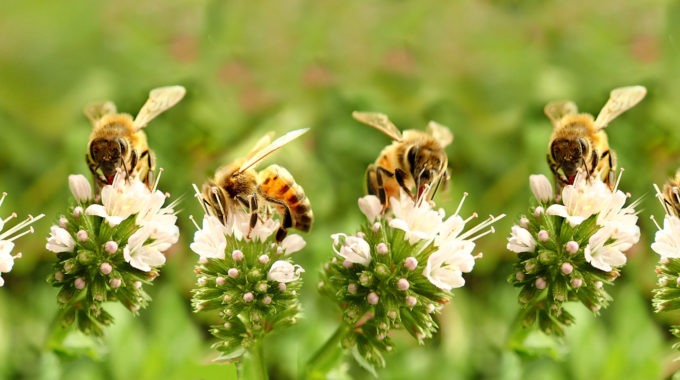Australians swarming to support bees
Pollinators need our help. Scientists around the world have sounded the alarm that we’re facing an “insect apocalypse” driven by pesticides, climate change, pollution, land clearing, bushfires and industrial agriculture. And so, in the lead-up to World Bee Day on May 20, farmers, gardeners and markets across the country are stepping up to support bees.
Farmers and gardeners can now do more to help protect Australia’s precious pollinators thanks to the launch of the brand-new Bee Friendly Farming (BFF) certification program.
BFF was created to work directly with farmers and gardeners to promote and certify bee-friendly landscapes and practices. The program has been launched in Australia by the Wheen Bee Foundation in collaboration with program creator Pollinator Partnership. There’s also the help of a $50,000 sponsorship from founding platinum partner, Flow Hive. Flow is a beehive system that’s less stressful on both the bees and the beekeeper.
Wheen Bee Foundation CEO Fiona Chambers says BFF Australia is a science-based program overseen by a national task force of Australian experts, including scientists and farmers.
“This task force ensures BFF can support bees and other pollinators to thrive under Australian conditions while optimising the benefits to landholders,” she says.
“As keystone pollinators, bees are essential to our lives. They play a crucial role in our food security, and they also underpin biodiversity and ecosystem health.”

Helping bees a “no-brainer” for farmers
Bees help to pollinate most of the crops we eat. In fact, one in every three mouthfuls of food you enjoy is pollinated by bees. Further, nearly two-thirds of Australia’s agricultural production benefits from bee pollination. So it’s not surprising many Aussie farmers are already getting on board with BFF. Applications span horticulture, grazing and viticulture.
For James Bowie, owner of family-run cattle operation Bowie Beef in Bridgetown, Western Australia, the integration of beef, biodiversity and bees is a “no-brainer”.
“There’s pollination benefits from honey bees and native bees,” he says. “There’s also the ecosystem services provided by beneficial insects who control pests and parasites.
On the farm, Bowie has focused on revegetation for a variety of benefits, including pollinator forage and insect habitat. He has also improved pastures by planting biodiverse perennials that provide year-round pollen and nectar. These function as “pollinator pathways” for bees and other insects across the landscape.

Working with nature
Mike Hogan has a four-hectare certified organic bee-friendly farm in Alstonville, northern NSW, where he grows avocados, custard apples and vanilla beans. He has implemented several bee-friendly practices, such as planting for biodiversity. Coffee, sunflowers, lilly pillies and Himalayan magnolias are just some of the plants he’s added to support bees.
“Looking after bees is looking after ourselves,” he says. “It’s also giving something back to the environment. A lack of bees means a lack of pollination. In reality, in my line of business, if you don’t have the bees, you’re not going to make any money.”
Hogan is encouraged by positive changes within our farming community to help pollinators. This includes a shift towards integrated pest management to reduce chemicals and sprays. He also believes the Australian launch of BFF is an exciting development for farmers.
“As part of coming on board, you get certified as a bee-friendly farm,” he says. “There are certain criteria you have to meet. But it’s not arduous; it’s working with nature for nature.”

Markets buzzing to celebrate World Bee Day
Farmers’ markets around Australia are encouraging shoppers to wear yellow at farmers’ markets this week to show their support for Australia’s hard-working pollinators. They’ll also be hosting special “We Need Bees” market day celebrations.
“We certainly wouldn’t have farmers’ markets without bees,” says Jane Adams, National Spokesperson of the Australian Farmers Markets’ Association (AFMA). AFMA has partnered with the Wheen Bee Foundation in the World Bee Day awareness campaign. “It’s so important to highlight the vital role of bees in our food supply.
“Australia’s farmers’ markets are proud to support World Bee Day. It will help raise awareness of the vital role bees play in our food system. AFMA salutes all the farmers’ markets that have pledged to celebrate World Bee Day. It’s yet another way the vibrant farmers’ market network can support healthy food systems and healthy communities.”
We Need Bees-themed markets will be held across Australia from May 15 to 23. The aim is to spread the message about our precious pollinators as well as the unique role they play in protecting our planet. They’ll also share what each of us can do to support bees in return.
Participating farmers’ markets include:
Greater Whitsunday – Qld, Wednesday, May 19
Eungai Creek – NSW, Friday, May 21
Mt Pleasant – SA, Saturday, May 22
Harvest Launceston – Tas, Saturday, May 22
Coburg – Vic, Saturday, May 22
Capital Region – ACT, Saturday, May 22
Margaret River – WA, Saturday, May 22
Manning – WA, Saturday, May 22
Willunga – SA, Saturday, May 22
Northey St Organic – Qld, Sunday, May 23
Adelaide Showgrounds – SA, Sunday, May 23
Eltham – Vic, Sunday, May 23
Vic Park – WA, Sunday, May 23
Want to help support bees? For a full list of participating markets and World Bee Day events, go to worldbeeday.org.au. To find out how to register to become a BFF certified farm or garden, as well as more info on BFF Australia, go to beefriendlyfarming.org.au









